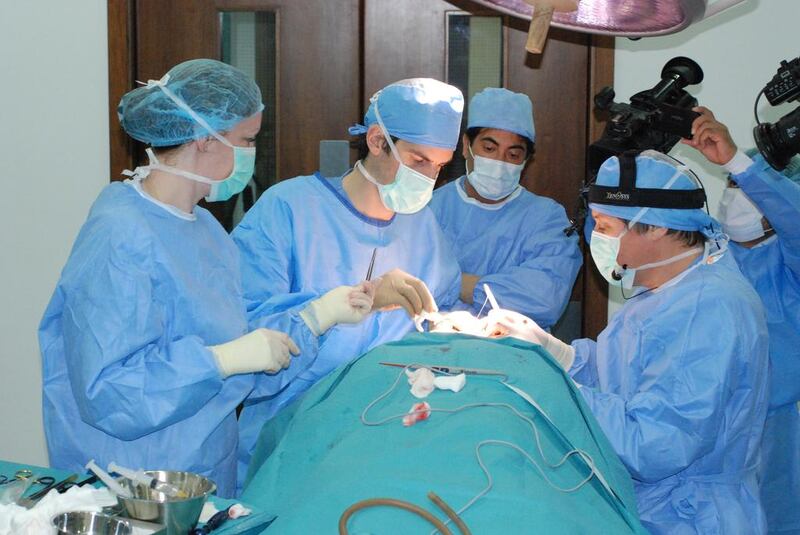Dubai’s healthcare providers will only be able to raise the prices of their services in line with general inflation, the government said yesterday.
The Dubai Health Authority (DHA) yesterday announced further details of its plan to regulate in the rising costs of private health care in the emirate as part of efforts to rein in the cost of living.
Providers can increase prices for next year by a maximum of 4.22 per cent per service – such as an MRI or CT scan – which is in line with the forecast rate of inflation set by the Dubai Statistics Centre. The prices would be valid until the end of next year, the DHA said.
Inflation was at more than 3 per cent in the third quarter of this year, up from 1.02 per cent a year earlier.
The inflation rate for health services was 2.36 per cent in the third quarter – led by dental services at 13.40 per cent – compared to same period last year. Hospital services increased by 7.87 per cent during the period, according to the DSC.
The emirate’s hospitals, clinics and polyclinics have until November 16 to notify the DHA whether they want to increase their prices, and until the end of this month to submit the rate at which they want to raise them.
The new regulations will affect all providers in Dubai and any serving Dubai insurance policies, said Dr Haidar Al Yousuf, the director of health funding for DHA.
“The criteria for acceptance or rejection of the request would be compliance with DHA, e-Claims and e-Prescriptions regulations, justification for the price rise, submission of financial audit report that details investment in infrastructure as per DHA requirements, and quality parameters,” he said.
“Soon, we will introduce the patient satisfaction parameter. We have designed a process that manages any potential price increase in a way that ensures quality parameters are addressed and price increases are regulated.”
The historical range of price increases of healthcare services was 3 to 10 per cent, he said.
Once the DHA approves the price rise, the providers need to negotiate with the insurers. Payers are not obliged to comply with rate hikes if these are not approved by the DHA.
“This ensures sustainability, is fair towards providers, and at the same time protects patient rights,” said Essa Al Maidoor, the DHA director general.
This year, the DHA reported close to one million insurance claims a month via the e-Claims portal with the value of all claims this year expected to reach Dh6.1 billion. That was up from 500,000 claims a month and an annual valued of Dh2.5bn last year. In 2016, DHA forecasts there will be 2.5 million claims a month amounting to Dh12.7bn for the entire year.
From January 1, 2016, the DHA will also regulate the rate of increase of health insurance premiums. Dubai’s mandatory health insurance policy is being implemented in phases.
The American Academy of Cosmetic Surgery Hospital based in Dubai Healthcare City said it welcomed the DHA’s move to regulate the market but will not increase prices for next year.
Nearly 80 per cent of the companies that have more than 1,000 people are in the process of finalising the mandatory health insurance programme, bringing 50 per cent of the population under health plans at the end of the first phase.
“So the [health insurance] market is now more and more mandatory, creating economies of scale, and we want to make sure premiums rises are contained,” Dr Al Yousuf said.
ssahoo@thenational.ae
Follow The National's Business section on Twitter





